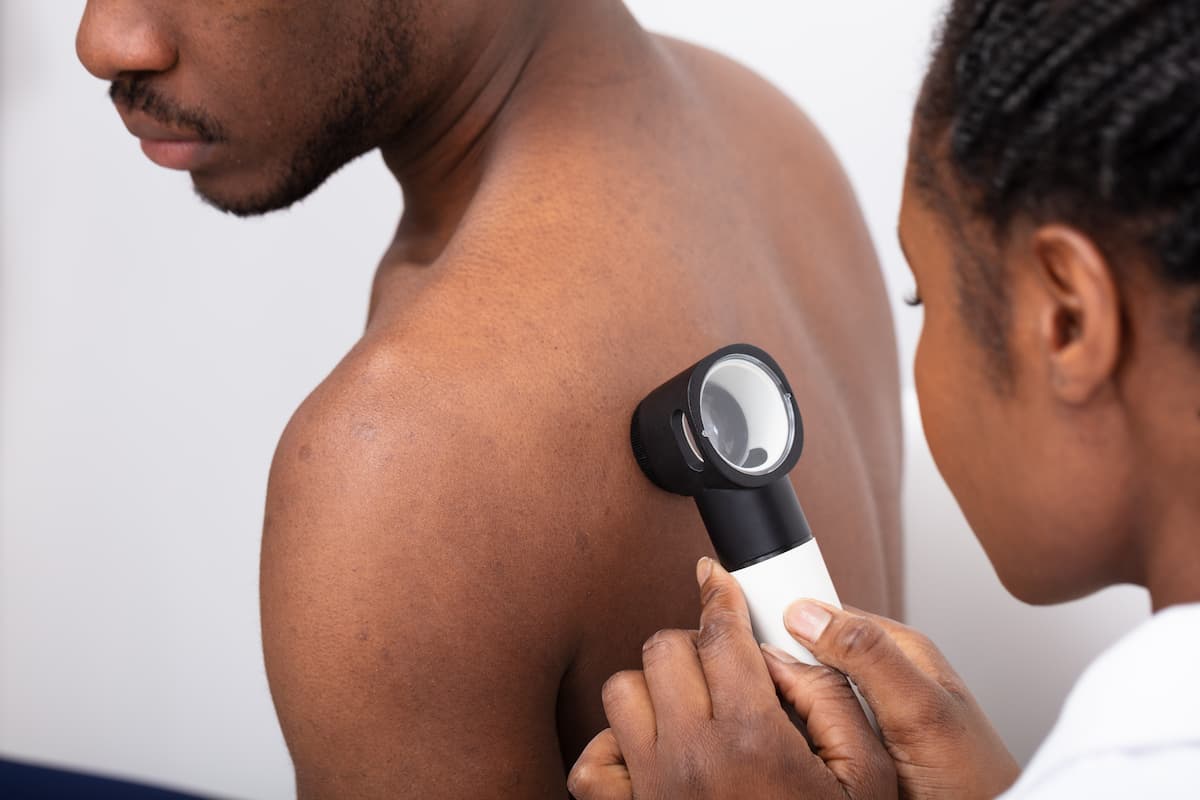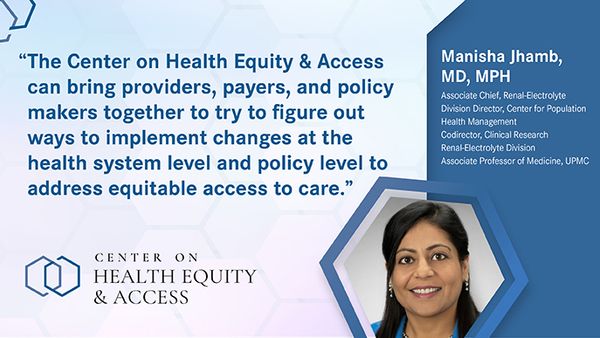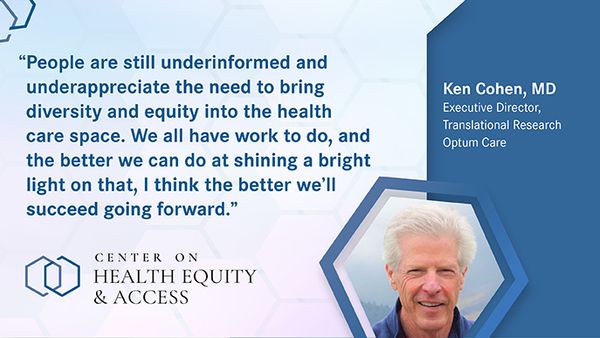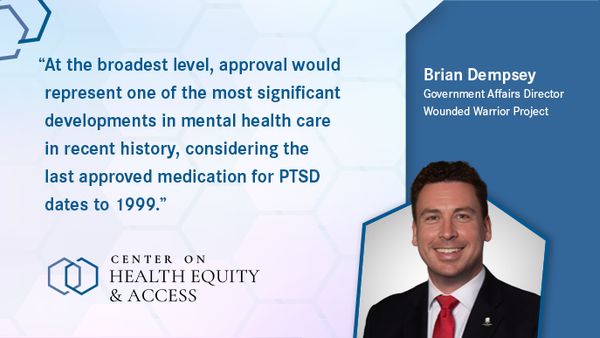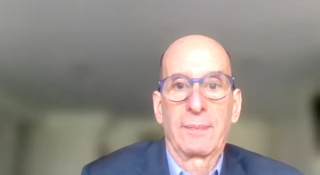
Center on Health Equity & Access
Latest News

Latest Videos

CME Content
More News

Here are 5 areas of specialty care that rural communities often lack, putting them at a distinct disadvantage for optimal short- and long-term health outcomes and highlighting inequitable access to care for those often living in economically disadvantaged areas.
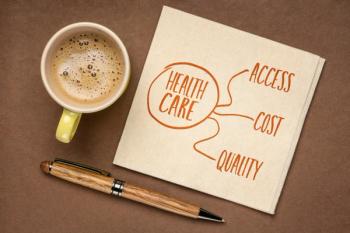
During the first fireside chat at the Patient-Centered Oncology Care® meeting, Alyssa Schatz, MSW, of National Comprehensive Cancer Network, discussed work being done to improve care for patients with cancer.

New research reveals disparities in opioid prescribing by race among Medicare beneficiaries, sparking concerns about potential impacts on rehabilitation outcomes.

During the presidential debate, former President Donald Trump and Vice President Kamala Harris shared their differing visions for the future of the Affordable Care Act (ACA).

A new report based on patient focus groups suggests many clinicians can do more to help patients with sickle cell disease (SCD) feel heard and understood.

Ali Khawar, Employee Benefits Security Administration, US Department of Labor, believes the final rule will be a benefit to employers and health plans that are trying to do the right thing and offer robust mental health benefits or substance use benefits.

Research presented at the 2024 European Society of Cardiology Congress explored gender-based care and outcomes disparities, with potential implications for health care policy and equitable care of women and men in secondary disease prevention.
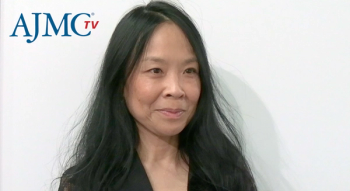
Wanda Phipatanakul, MD, MS, professor of pediatrics at Harvard Medical School and director of the Clinical Research Center at Boston Children's Hospital, discusses some of the most significant health disparities impacting respiratory care.

Lung cancer screening experts from around the globe delivered strategies and best practices for improving access to screening and facilitating earlier detection at the 2024 World Conference on Lung Cancer.

The Center on Health Equity & Access provides the latest news, research, and expert opinions on the state of equity in health care.

Discussions of social determinants of health might focus on the obvious ones—like income or education—while overlooking some other social determinants that impact health in complex ways.

Text messaging shows promise for assessing smoking status and identifying lung cancer screening eligibility, particularly among middle-aged, educated individuals with medium or high income. However, a multimodal approach is crucial for equitable implementation of such a program.

Patients With Vitiligo Experience Poorer Quality of Life but Greater Health Care Access, Utilization
Compared with those without vitiligo, patients with vitiligo have higher health care access and utilization but report a lower quality of life.
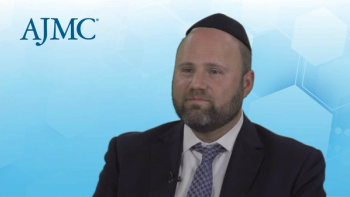
Ian Neeland, MD, of University Hospitals and Case Western Reserve University, recommended a team-based, comprehensive approach to managing diabetes and its related complications.
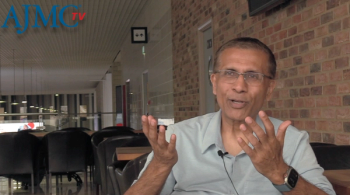
The FINEARTS-HF late-breaking data were forefront at the 2024 European Society of Cardiology Congress in London.
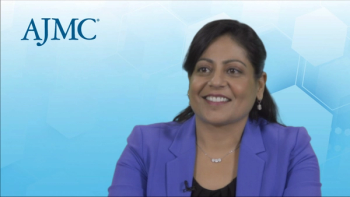
Manisha Jhamb, MD, MPH, of the University of Pittsburgh Medical Center (UPMC), is excited about CMS's negotiated drug prices under the Inflation Reduction Act (IRA) for patients with kidney disease; conversely, she highlights the challenge of low kidney disease awareness.

The final report unveils actionable steps for integrating equity into health technology assessment.

The authors assessed what attributes make provider networks adequate in the eyes of consumers, including travel times, inclusive care, and language access.
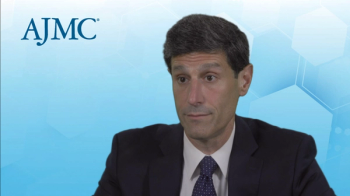
Ty J. Gluckman, MD, FACC, FAHA, of Providence St. Joseph Health, reacted positively to CMS' drug price cuts under the Inflation Reduction Act, but he also expressed concerns about the potential future impact on drug innovation.

September is National Recovery Month, and we are bringing you another limited-edition month-long podcast series with our Strategic Alliance Partner, UPMC Health Plan. In this first episode, we speak with Michael Lynch, MD, associate professor of emergency medicine at the University of Pittsburgh and an attending emergency physician and medical toxicologist at the University of Pittsburgh Medical Center.

The COVID-19 pandemic accelerated the adoption of telehealth nationwide, revealing significant benefits while also exposing ongoing challenges.

"Now we can actually focus and look at the disease itself, treat the heart disease itself, which is the plaque in the coronary arteries, as opposed to treating the risk of disease," Amir Ahmadi, MD, Mount Sinai, says in an interview at the European Society for Cardiology Congress.

At the 25th International AIDS Conference, Emmanuel Nazaire Essam, MD, MPH, presented the analysis, "Medicaid Insurance Expansion and Its Association With HIV Outcomes in Nebraska, USA: An Observational Prospective Cohort Study."

David Thompson, PhD, Queen’s University Belfast, expands on previous research he conducted that calls for cardiovascular health care providers to actively address care inequities evident in practice and policy.

Anna Mueller, MD, and Amir Ahmadi, MD, of Mount Sinai, highlight gaps in risk assessment tools for acute coronary syndrome, calling for more comprehensive screening strategies.

